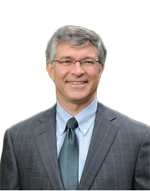Assemblymember Steck Introduces Anti-Spam Call Legislation, Fights to Improve Local Cell Service
Unreliable cell service is a health and safety issue that Assemblymember Phil Steck is fighting to remedy with the help of Colonie residents. Steck recently sent a letter to federal officials and the leaders of several major cell carriers notifying them of the problem. In his letter, he implored them to make a more concerted effort to bolster their infrastructure to provide adequate coverage.
Local emergency communication centers handle hundreds of calls daily and, unfortunately, have reported that cell phone coverage in the Town of Colonie has spurred dropped emergency calls. To ensure the proper changes are made, Assemblymember Steck is urging residents to report dead zones in cell coverage to concerns110@nyassembly.gov. When reporting an issue, please include your carrier and the approximate address of the dead zone or spotty service.
Assemblymember Phil Steck (D-Colonie) also announced that he introduced legislation to limit the amount of spam calls New Yorkers receive (A.4371). This legislative initiative comes amidst Steck’s continued effort to address the lackluster cell phone service that is plaguing parts of Colonie.
“Having reliable cell phone service is incredibly important,” Assemblymember Steck said. “It’s needed by parents to keep track of their children, people in danger to contact authorities, and emergency services to locate those in need. It’s also vital that people can use their cell phone without worrying that the call will drop or that an untimely spam caller will come through. That’s why I introduced legislation to curb the spread of spam callers and worked to address the subpar cell service that many in our area experience.”
Receiving unwanted solicitation or fraudulent spam calls can be frustrating and is not a legitimate use of telecommunication services. If passed, Assemblymember Steck’s bill would prohibit any telecommunication company from contracting with New York or any of its political subdivisions unless it provides its readily available automated call-blocking technology for free to all of its landline and wireless customers in the state.
